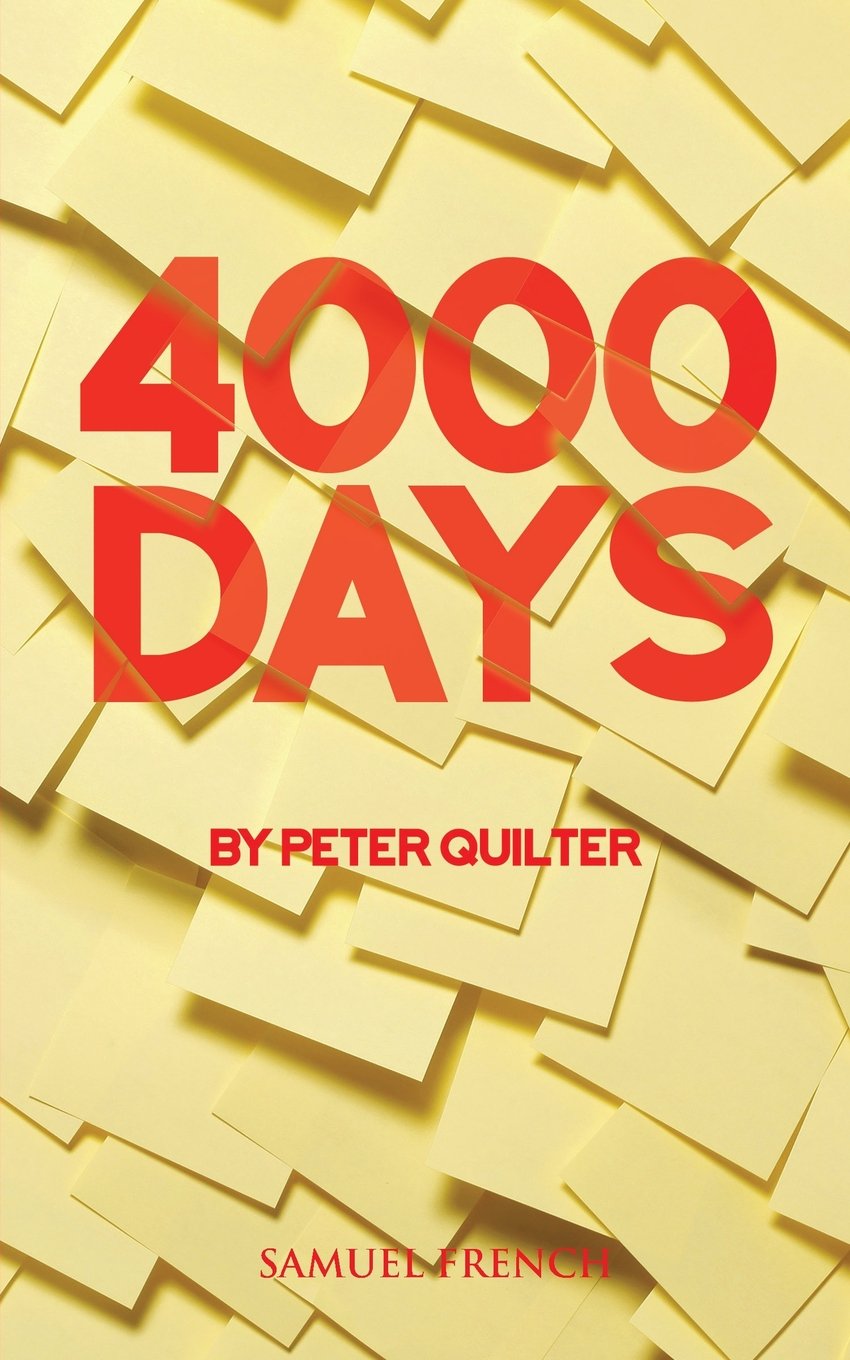Published by Samuel French
4000 Days by Peter Quilter, is the story of Michael a passionate and entertaining man, and his recovery upon suffering a complete loss of memory of the previous eleven years of his life, ten of which were spent getting to know and love his partner, Paul (a more practical but admiringly devoted man). Whilst Paul fights for his partner’s memories that they shared together, Carol, Michael’s obnoxious but caring mother is battling just as hard for these memories of Paul to stay repressed. Her experience with her previous three husbands has left her with an unconditional distrust for men in general, a distrust she has invested, undeservingly, in Paul.
This comical bitterness and provoking behaviour between Carol and Paul is excellently amusing and accentuates the juxtaposition of the two characters.
Carol’s character is superb in portraying the stereotypical attitudes you might expect of an old fashioned, once widowed, once divorced and ‘abandoned woman’. Throughout the play, distaste for Carol is developed but this is bizarrely accompanied by a likeability of her hypocritical and vain behaviour, exemplified right away with Paul acknowledging Michael is loved by many and Carol retorting, ‘he gets that from me.’ However, in the play’s final moments, her cold, spiteful façade is lost and at once you feel sympathy for Carol as you see her fantastically crafted character in all her vulnerability.
Whereas, Paul, a modernised and initially plain man is deserving of the audience’s sympathy from the start. His heart-rending devotion to Michael is magnificent in illustrating the power of love between two human beings, and his distress upon finding out he is absent from his lover’s memory is mirrored upon the audience. Paul’s actions following this discovery are terrifically emotional and allow the audience to connect with Paul and sympathise entirely with him.
Quilter’s creation of Michael’s character, Carol’s charismatic and creative son, is first-rate in exhibiting the value of second chances in life and their rarity. His confusion after first awaking implores the audience to imagine what it must be like in a situation like that, thus instantly gaining their sympathy.
Despite the play being about Michael’s situation the roles of the three characters are all equally as strong and important as each other, showing the influence the events of a loved one’s life have on the individual. Quilter takes the audience on a transfixing and emotive journey with the story of 4000 days, showing them the value of relationships, the importance of our lives and the necessity of appreciating every moment of them.
Review by Joseph Bird, Y12 pupil, Norton Knatchbull School, Kent



